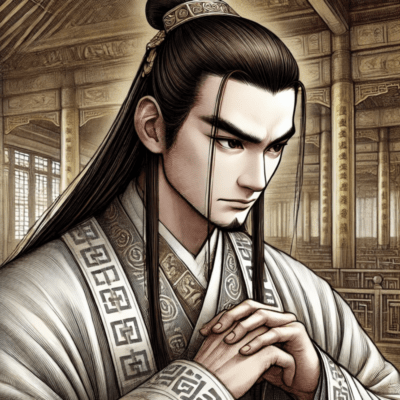Before China was unified under one emperor, the land was torn apart by constant war.
For over two centuries, powerful kingdoms fought for survival—each led by brilliant and ruthless commanders.
Among them, four names stand above the rest: Bai Qi, Wang Jian, Li Mu, and Lian Po.
Known as the “Four Great Generals of the Warring States,” they shaped history on blood-soaked battlefields.
But who was truly the greatest of them all?
Let’s take a closer look at their lives, tactics, and legacy.
Part 1: Bai Qi – The Butcher of Men
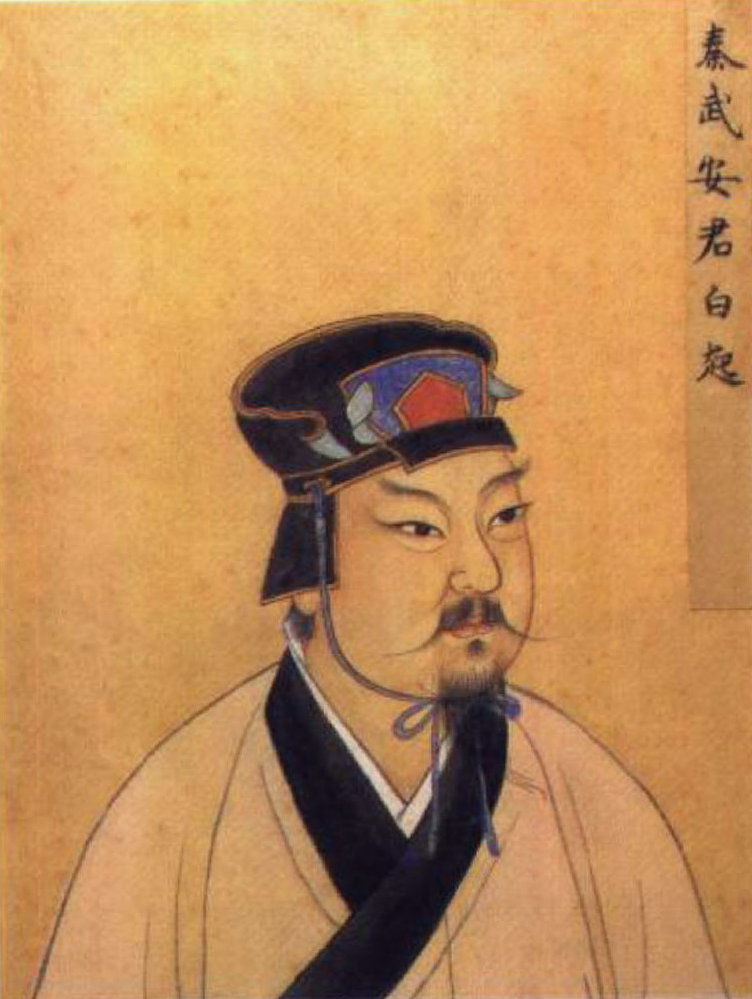
Bai_Qi public domain
His enemies called him “The Human Butcher.”
But Bai Qi wasn’t simply cruel—he was a master of annihilation.
Fighting for the State of Qin, Bai Qi believed in total victory—
not just defeating an army, but completely destroying it.
He cut off supply lines, blocked escape routes, and forced surrender…
only to slaughter even the soldiers who laid down their arms.
In the Battle of Yique (293 BC), Bai Qi crushed the allied armies of Han and Wei—killing 240,000.
In 278 BC, he captured the Chu capital of Ying, pushing the Chu kingdom south.
At Huayang, he killed another 130,000.
But his most infamous battle came in 260 BC—the Battle of Changping.
There, Bai Qi took advantage of an inexperienced general named Zhao Kuo.
He lured the Zhao army into a trap, cut off their supplies, and starved them out over 46 days.
When the Zhao soldiers finally surrendered—over 400,000 of them—
Bai Qi ordered their execution, sparing only 240 young boys.
The result? The State of Zhao was broken beyond repair.
Bai Qi’s ruthlessness may seem monstrous—but it was calculated.
He believed that only total destruction could prevent future resistance.
In terms of pure battlefield dominance, Bai Qi stands alone.
Part 2: Wang Jian – The Relentless Strategist
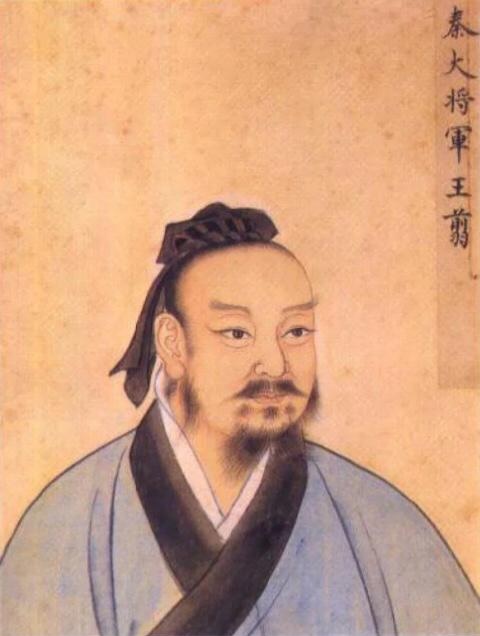
秦大将军王翦 public domain
If Bai Qi was the blade of Qin, then Wang Jian was the mind.
Calm, cautious, and calculating—Wang Jian never chased glory.
He won by knowing when to fight… and when to wait.
His strategies weren’t flashy, but they were flawless.
Under King Zheng—the future First Emperor—Wang Jian became Qin’s most trusted commander.
In 236 BC, he joined forces with generals Yang Duanhe and Huan Yi to seize nine cities from the Zhao kingdom.
In 229 BC, he led the main army against Zhao again, capturing its capital Handan the next year.
Then came Yan—and Wang Jian crushed them too.
But his greatest achievement was the conquest of Chu, Qin’s most powerful rival.
At first, another general named Li Xin was given 200,000 men to attack Chu.
Li Xin failed—and was crushed in an ambush.
The king turned to Wang Jian, who demanded 600,000 troops.
Some saw this as cowardice—but Wang Jian was buying insurance.
With overwhelming force, he invaded Chu, wore down its army, and launched a final, crushing assault.
Wang Jian even faked greed during the campaign—asking the king for estates and rewards.
But it wasn’t selfishness—it was smart politics.
By appearing harmless, he avoided the king’s suspicion.
In war and in court, Wang Jian played the long game—and always won.
Part 3: Li Mu – The Last Shield of Zhao
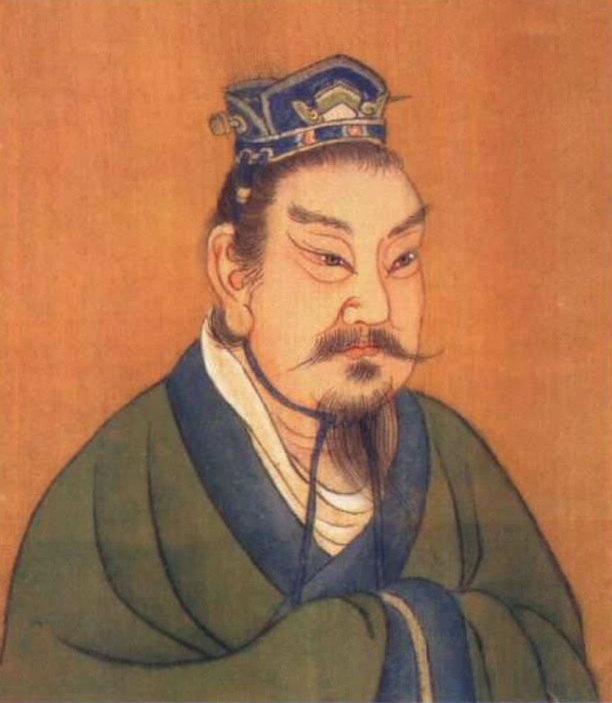
Li_Mu1 public domain
While Qin was rising, the kingdom of Zhao was holding the line.
And standing at the front of that line—was Li Mu, Zhao’s greatest general.
He first proved himself not against rival kingdoms, but against the Xiongnu, fierce nomadic raiders from the north.
Unlike hotheaded commanders, Li Mu chose patience.
He built strong defenses, avoided open battle, and waited for the right moment to strike.
At first, this strategy was mocked. Some even called him a coward.
He was removed from command—
but his replacement rushed into battle and suffered a devastating defeat.
The king had no choice but to bring Li Mu back.
Once reinstated, Li Mu crushed the Xiongnu and protected Zhao’s northern frontier for over a decade.
But a greater threat loomed from the west—Qin.
After Zhao’s defeat at the Battle of Changping, the kingdom never truly recovered.
Its heroes—Zhao She, Lin Xiangru—were gone.
Even the famed general Lian Po had left.
Li Mu was Zhao’s last hope.
In 233 BC, Qin’s general Huan Yi attacked two cities: Chili and Yian.
Li Mu responded with a brilliant counterattack—defeating the Qin army in open battle.
A year later, he stopped another invasion at Fanwu.
He didn’t just defend—he broke enemy supply lines, exhausted their forces, and launched surprise attacks.
Li Mu didn’t need overwhelming numbers—he fought smarter.
Had he been given more time—or more trust—Li Mu might have saved Zhao.
But in the end, politics—not war—brought him down.
Part 4: Lian Po – The Wall of Zhao
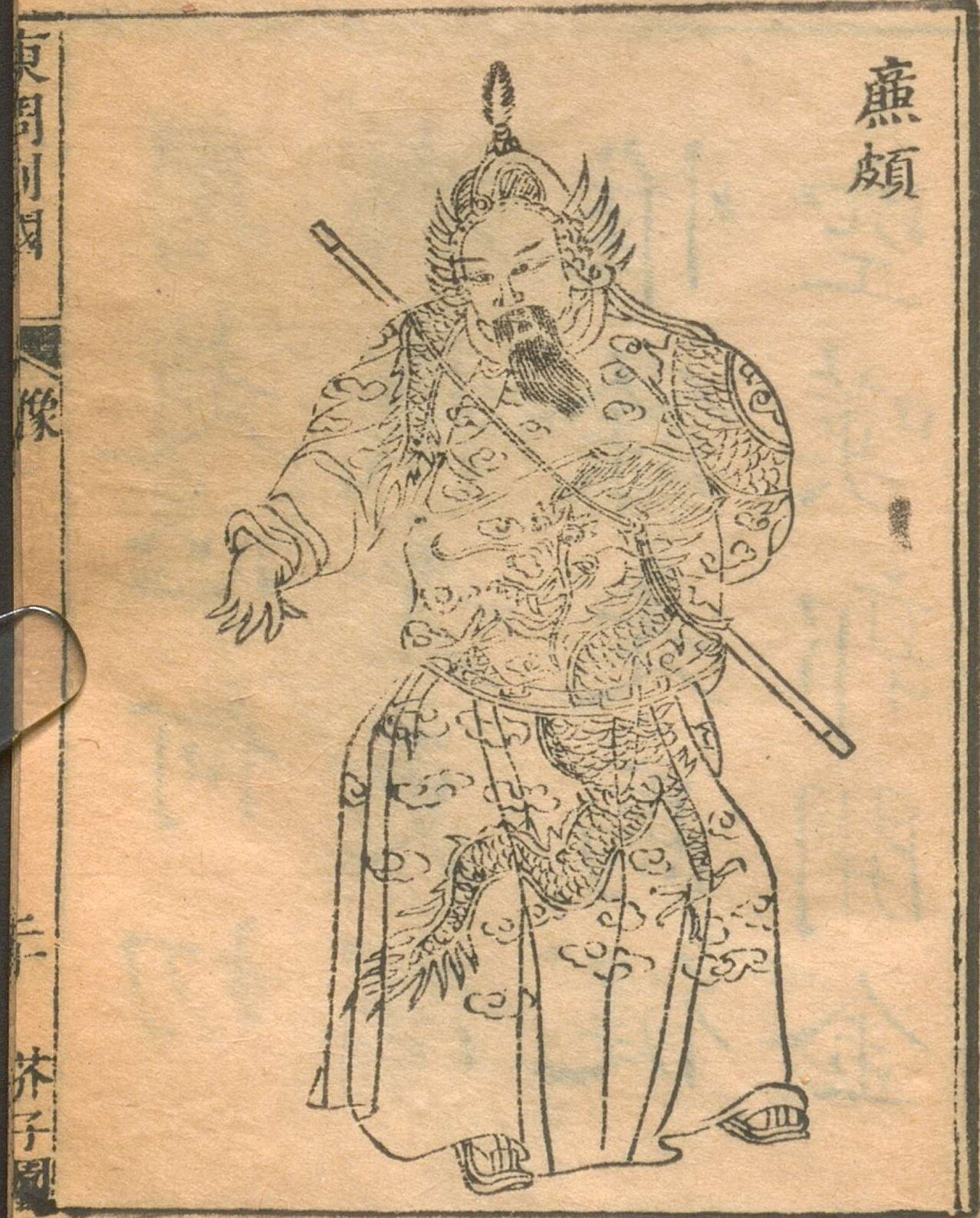
廉頗 public domain
Lian Po was a warrior from youth—a bold, battle-hardened general who earned his fame through both offense and defense.
But above all, he was the master of defense.
In 283 BC, he led a successful campaign against the powerful state of Qi—capturing cities and earning the prestigious title of Shangqing, one of the highest ranks in Zhao.
Yet his true genius appeared during the early phase of the Battle of Changping.
Facing the mighty Qin army, Lian Po chose not to fight head-on.
Instead, he fortified his position, avoided open conflict, and dragged the battle into a long war of attrition.
His goal was simple: outlast the enemy.
Far from cowardice, it was strategic patience—wearing down Qin’s supply lines and morale.
But at home, some saw only hesitation.
Pressured by court advisors, King Xiaocheng removed Lian Po… and replaced him with a young, inexperienced general named Zhao Kuo.
It was a disaster.
Zhao Kuo abandoned Lian Po’s cautious strategy, launched an all-out assault—
and fell right into Bai Qi’s trap.
The result: 400,000 Zhao soldiers buried alive.
Years later, Lian Po would return to glory.
In 251 BC, when the state of Yan invaded, he crushed their army and surrounded their capital, forcing Yan to surrender five cities to buy peace.
Lian Po was not just a soldier—he was a man of honor.
In his later years, he famously clashed with the statesman Lin Xiangru, out of jealousy.
But when he saw Lin’s integrity, he publicly apologized, and the two became sworn brothers—ready to die for one another.
Lian Po was Zhao’s wall—strong, reliable, and never afraid to take the hits.
Part 5: Who Was the Greatest?

Four generals.
Four different styles.
Each left a permanent mark on the battlefield—and on history.
Bai Qi was the master of annihilation.
He never lost a single battle, and his kill counts were unmatched.
But his methods were brutal—and earned him as many enemies as victories.
Wang Jian was the long-game strategist.
He avoided unnecessary risks, secured steady wins, and helped Qin unify China.
He may not have dazzled—but he delivered.
Li Mu was Zhao’s last shield.
A master of flexible defense, he crushed invasions with brain over brawn.
He could have been a legend—if politics hadn’t cut him down first.
Lian Po was the unshakable wall.
A soldier’s general, both feared and respected.
He may not have won the biggest battles—but he saved Zhao more than once.
So, who was the greatest?
If you value overwhelming victories—Bai Qi stands at the top.
If you value unification and empire—Wang Jian was the architect.
But maybe greatness lies not in killing or conquering…
but in protecting—in standing your ground when all else fails.
In the end, history remembers them all.
But who you choose as the greatest… says something about what you believe war should be.

